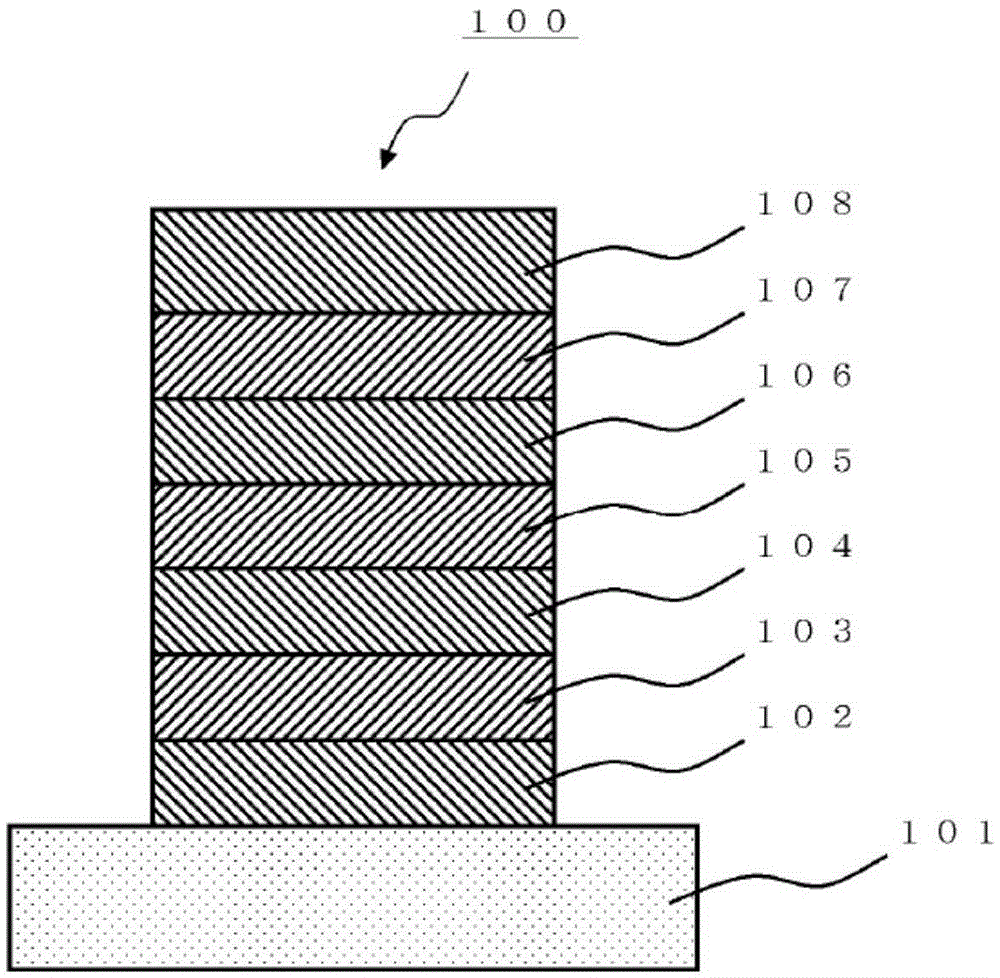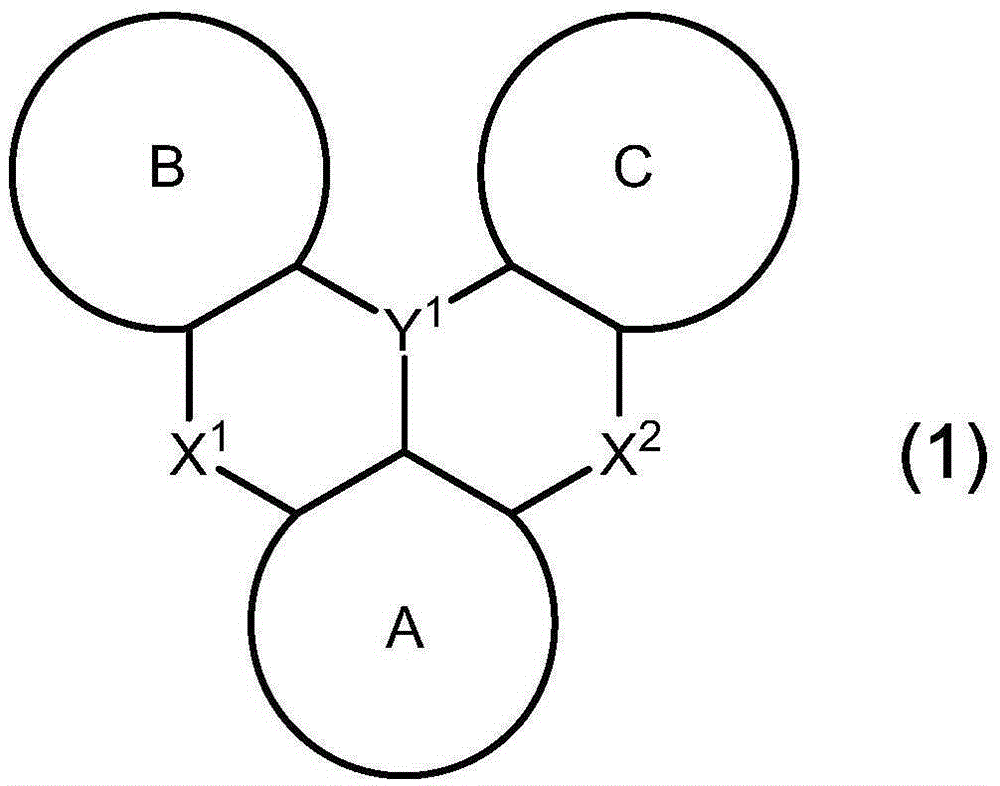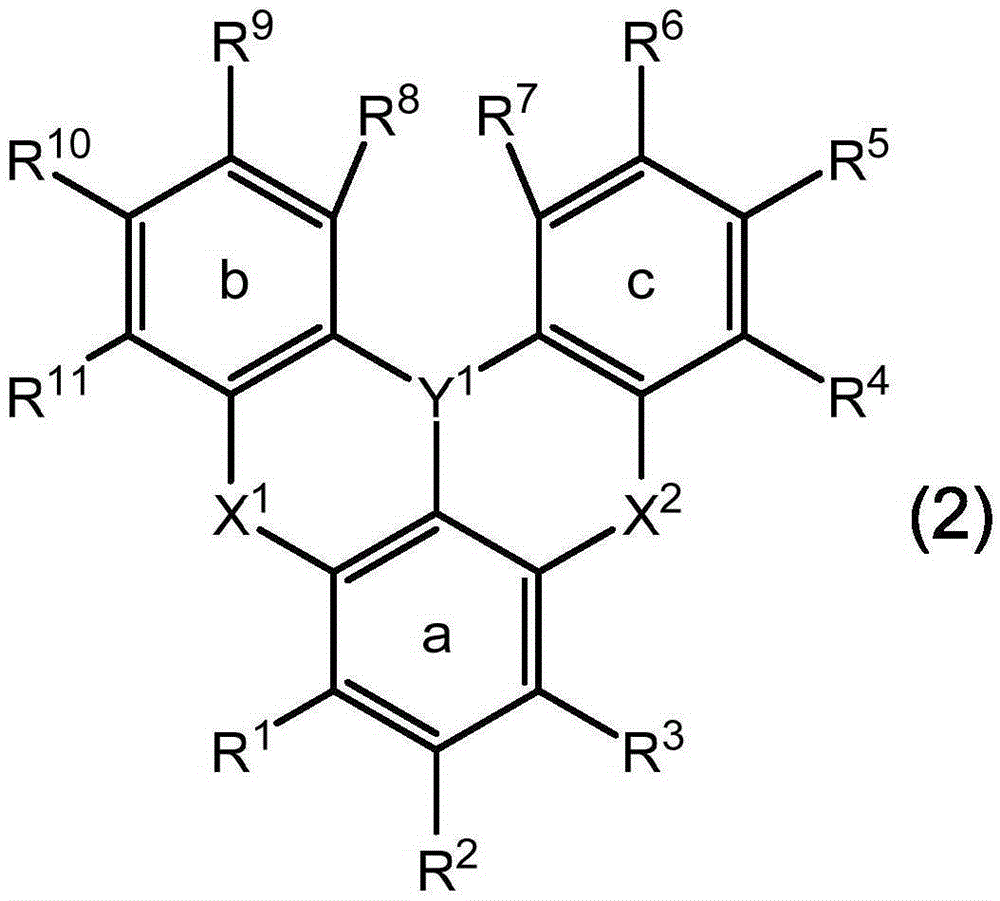Polycyclic aromatic compound
A polycyclic aromatic compound technology, applied in the field of display devices and lighting devices, can solve the problems of unsuitable main materials, insufficient life, and insufficient stability of aromatic epoxy redox
- Summary
- Abstract
- Description
- Claims
- Application Information
AI Technical Summary
Problems solved by technology
Method used
Image
Examples
Embodiment
[0766] Hereinafter, although an Example demonstrates this invention more concretely, this invention is not limited to these Examples. First, a synthesis example of a polycyclic aromatic compound will be described below.
Synthetic example (1
[0768] Synthesis of 5,9-dioxa-13b-boranaphtho[3,2,1-de]anthracene
[0769] [chem 252]
[0770]
[0771] First, add 1.6M n-butyllithium hexane solution (0.75ml) to a flask containing diphenoxybenzene (0.26g) and o-xylene (3.0ml) at 0°C under a nitrogen atmosphere . After stirring for 30 minutes, the temperature was raised to 70° C., and stirring was continued for 4 hours. After heating and stirring at 100° C. under a nitrogen stream to distill off hexane, the mixture was cooled to -20° C., boron tribromide (0.114 ml) was added, and stirred for 1 hour. After heating up to room temperature and stirring for 1 hour, N,N- diisopropylethylamine (0.342 ml) was added, and it heated and stirred at 120 degreeC for 5 hours. Then, N,N-diisopropylethylamine (0.171 ml) was added, it filtered using the magnesium silicate short path column (Florisil short path column), and the solvent was distilled off under reduced pressure to obtain a crude product. The crude organism was washed with ...
Synthetic example (2
[0777] Synthesis of 15b-bora-5,9-dioxaphenanthro[1,2,3-ij]tetraphene
[0778] [chem 254]
[0779]
[0780] First, copper (I) iodide (19.7 mg), α-picolinic acid (26.2 mg), potassium phosphate (0.429 g), resorcinol (57.5 mg) and 1-bromonaphthalene (0.154 ml) was added to a flask containing dimethyl sulfoxide (2.0 ml). After heating and stirring at 90° C. for 33.5 hours, 1N aqueous ammonia (3.0 ml) was added at room temperature, and the aqueous layer was extracted three times with toluene, and the solvent was distilled off under reduced pressure. The obtained solid was purified by silica gel column chromatography (developing liquid: toluene) to obtain 1,3-bis(1-naphthyloxy)benzene (0.155 g) as a white solid.
[0781] [chem 255]
[0782]
[0783] Under nitrogen atmosphere, 1.6M n-butyllithium hexyl Alkanes solution (9.0ml). After heating up to 70°C and stirring for 4 hours, the temperature was further raised to 100°C, and hexane was distilled off. After cooling to 0° C...
PUM
| Property | Measurement | Unit |
|---|---|---|
| electron work function | aaaaa | aaaaa |
| thickness | aaaaa | aaaaa |
Abstract
Description
Claims
Application Information
 Login to View More
Login to View More - R&D
- Intellectual Property
- Life Sciences
- Materials
- Tech Scout
- Unparalleled Data Quality
- Higher Quality Content
- 60% Fewer Hallucinations
Browse by: Latest US Patents, China's latest patents, Technical Efficacy Thesaurus, Application Domain, Technology Topic, Popular Technical Reports.
© 2025 PatSnap. All rights reserved.Legal|Privacy policy|Modern Slavery Act Transparency Statement|Sitemap|About US| Contact US: help@patsnap.com



